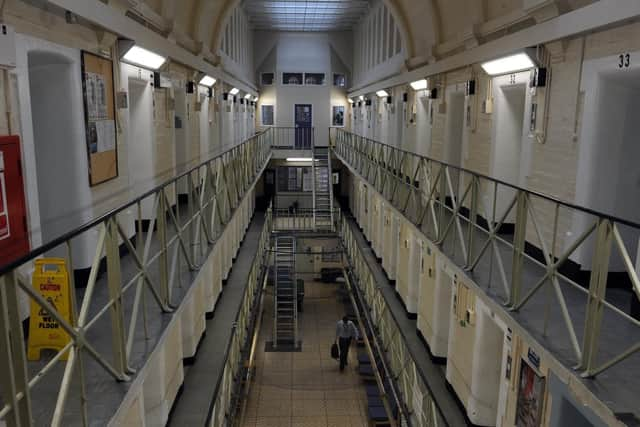Sister of Leeds prisoner who died 'scared, starving, sick, and alone' speaks out as prison death report is published
and live on Freeview channel 276
The prison ombudsman heard how Mohammed Irfaan Afzal, 22, lost around three stone in 48 days while on remand in Armley, before his death on August 4, 2019.
Mohammed’s story is part of a report published this week by Inquest, a charity which investigates state-related deaths, looking into the deaths of 22 BAME prisoners, and how their deaths were preventable. It calls for the government to do more to scrutinise prison deaths, make data available, and for funding to be redirected away from the criminal justice system and towards welfare, health, education and housing.
Advertisement
Hide AdAdvertisement
Hide AdSpeaking on the release of the report, Mohammed’s sister Ayesha Afzal said: “My brother suffered for the last few months of his life scared, starving, sick, and alone.


"That will haunt me every day until I die. No one has been held accountable for his death, and there has been no justice.”
The report states that, on the day before he died, prison staff found a large quantity of uneaten food in Mohammed’s cell.
Prison staff had raised concerns about Mohammed during his time there, describing him as “bewildered” and “child-like”. While prison staff considered that he may have had a learning disability or mental ill health, Mohammed was never seen by the learning disability nurse nor received a full mental health assessment.
Advertisement
Hide AdAdvertisement
Hide AdThe report continued: “Two days before he died, Mohammed was found slumped on a chair.
"A nurse assessed that he did not need to go to hospital, but the inquest heard that staff did not examine his chest nor his ability to walk unaided. The PPO found Mohammed was not assessed as fully as he should have been.”
The next day Mohammed was found unresponsive in his cell. He died later that day.
Deborah Coles, Executive Director of INQUEST said: “The failure of post-death investigations to examine the potential role of racism or discrimination in deaths renders racialised issues invisible. As a result, the opportunity to acknowledge and address racial injustices and inequalities is lost.
Advertisement
Hide AdAdvertisement
Hide Ad"The decision to imprison the people featured in this report ended up being a death sentence. Imprisonment is ineffective in reducing crime and instead perpetuates harm and violence, with racialised and marginalised groups worst affected.
"In order to end deaths of racialised people in prison, in the short term we need more focused investigation, oversight and action on these deaths. In the long term we must halt prison building and redirect resources from the criminal justice system to welfare, health, housing, education and social care.”
Among the report recommendations is a government-produced “detailed action plan” to address the issues of racialised deaths in prisons, and called on the Ministry of Justice to ensure data related to the race of prisoners in safety in custody data be freely available.
It concluded: “ Imprisonment is ineffective in reducing crime and instead perpetuates harm and violence, with racialised and marginalised groups worst affected.
Advertisement
Hide AdAdvertisement
Hide Ad"In order to end the heightened criminalisation, intensified policing, disproportionate imprisonment and deaths of racialised people in prison, we must halt prison building and decrease investment into the criminal justice system more broadly.”